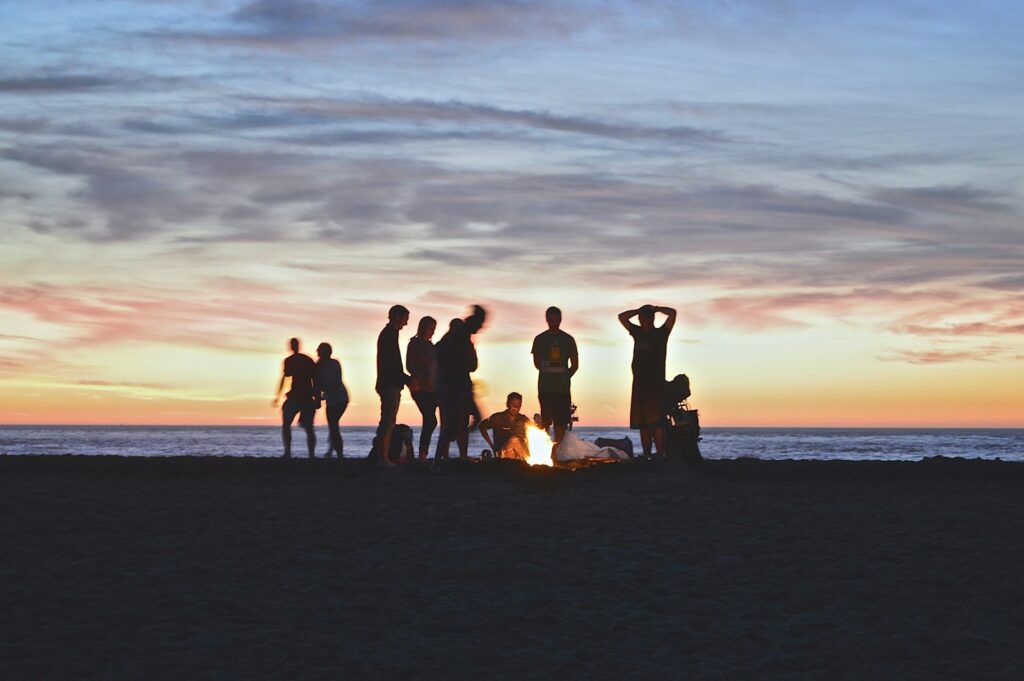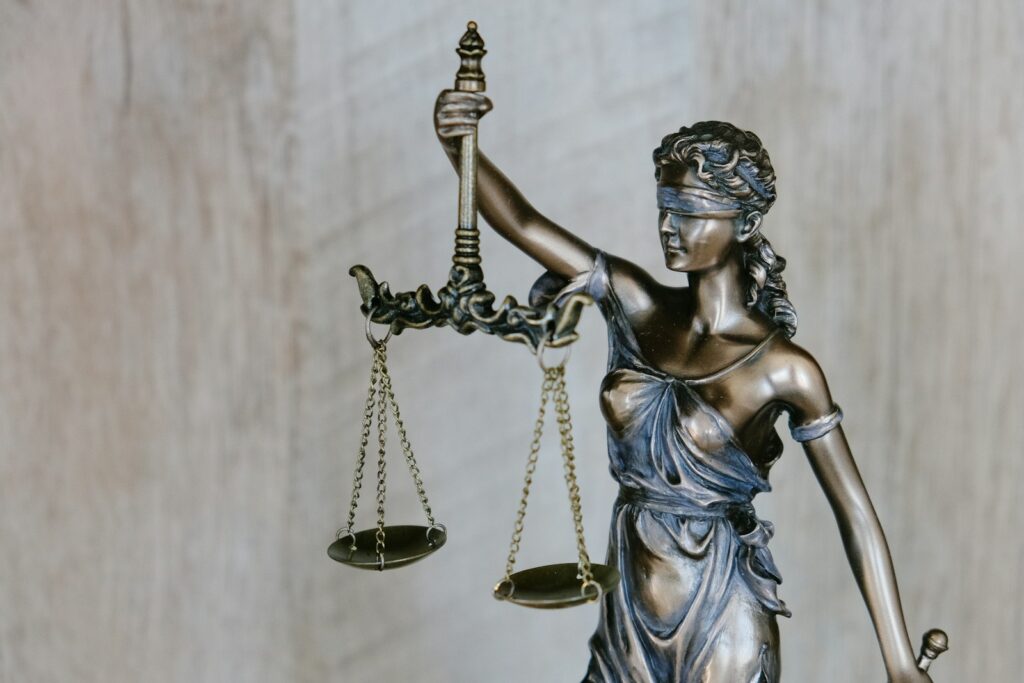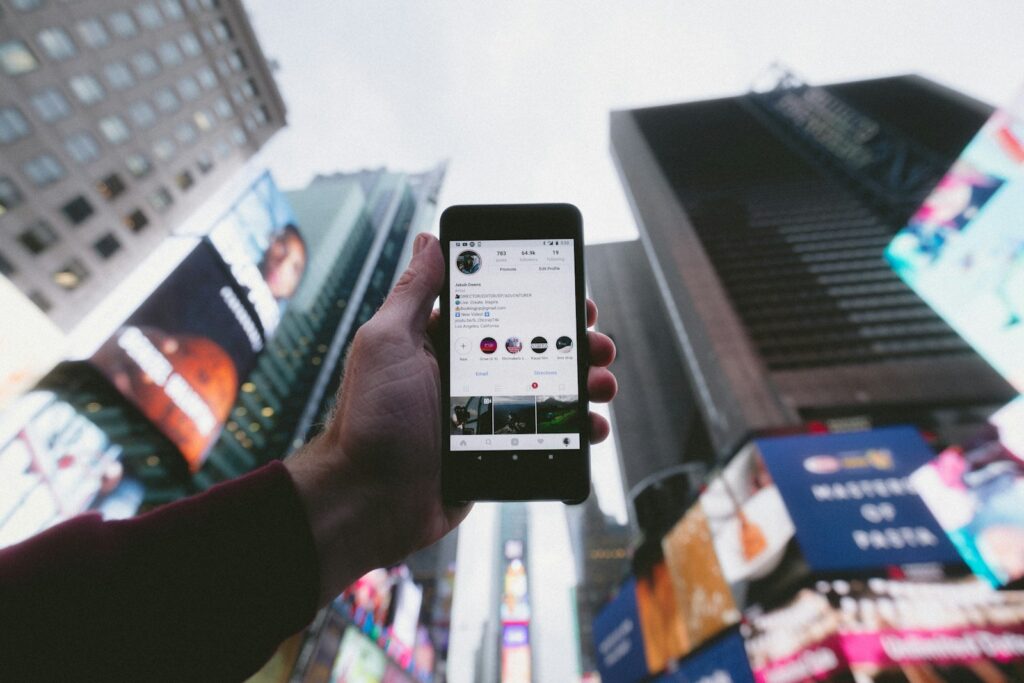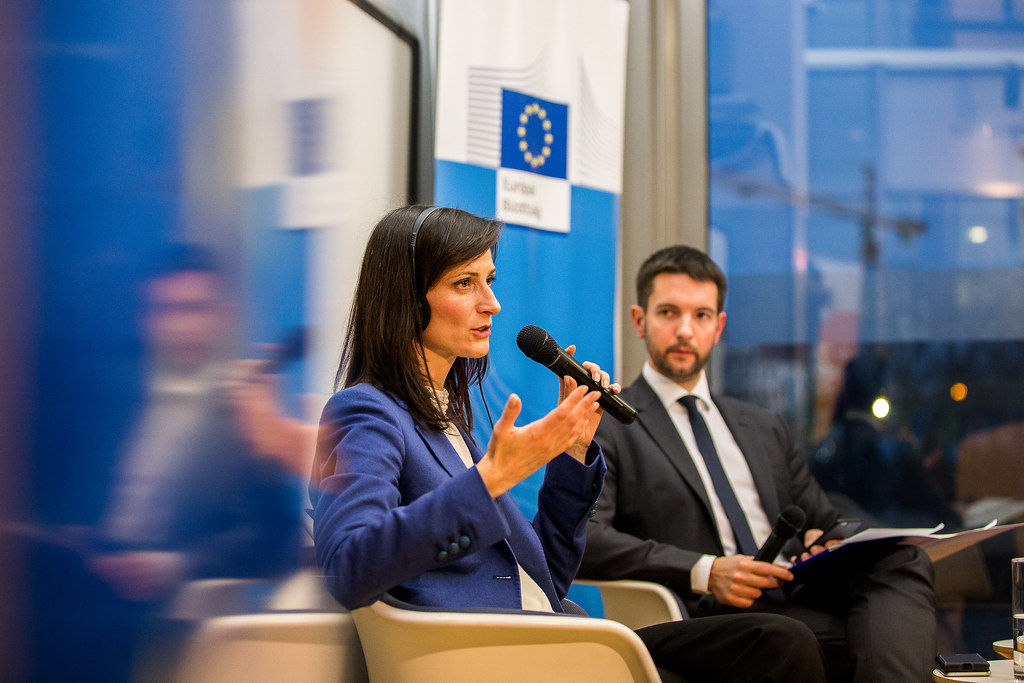
The world of A-list celebrity has always been a fascinating paradox: a shimmering realm of immense fame and public adoration, yet simultaneously a battleground for personal space. In an age where every moment can be captured, shared, and dissected in an instant, maintaining any semblance of privacy feels like an increasingly impossible feat. We see the headlines, the paparazzi shots, the viral social media moments – from Timothée Chalamet and Kylie Jenner’s Golden Globes PDA to Emily Ratajkowski and Harry Styles’ Tokyo kiss – and it’s easy to assume that privacy is simply a relic of a bygone Hollywood era. But let’s be real: while the landscape has dramatically shifted, the desire for a private life hasn’t vanished.
The truth is, even in this hyper-connected world, many stars are employing sophisticated, often subtle, strategies to carve out their personal havens. It’s not about being a recluse; it’s about control, empowerment, and navigating the relentless gaze of public curiosity on their own terms. As Mark Borkowski, author of *The Fame Formula*, explains, celebrities now choose to “control the narrative surrounding their personal lives, ensuring they have a say in how their relationships are portrayed in the media” by using their own channels. This shift empowers them to appear more “authentic” and relatable, solidifying fan loyalty, even as others are doubling down on discretion.
So, how do they do it? How do some of the biggest names manage to keep significant parts of their lives under wraps when it seems like everyone is constantly baring their souls? It’s far from pure luck. From carefully curated online presences to old-school gatekeeping and the power of a truly loyal inner circle, there’s a comprehensive “privacy playbook” at work. And if these strategies can work for the most scrutinized individuals on the planet, imagine what they can do for us. Let’s dive into some of the most effective habits and approaches that A-list stars use to maintain extreme privacy.

1. **Maintaining a Low Social Media Profile or Shutting It Down Entirely.**In an era where social media often feels like a prerequisite for celebrity relevance, some A-listers deliberately choose to scale back their online presence or even opt out entirely. This isn’t just about reducing digital noise; it’s a foundational step in regaining control over the narrative and limiting unsolicited access to their personal lives. As one A-list Hollywood publicist noted, “If you want to be private, you gotta be private from the beginning,” and a significant part of that means “distancing yourself from social media, or even shutting it down entirely.” This approach creates a mystique, making their public appearances or carefully chosen disclosures all the more impactful.
This strategic withdrawal from the constant churn of likes and shares allows celebrities to escape the immense pressure to perform and perpetually share. Without a direct feed into their daily lives, fans and media outlets have fewer opportunities to scrutinize every meal, outfit, or fleeting mood. It removes the temptation for impulse sharing that can inadvertently open doors to more invasive speculation. For stars who built their careers before the social media boom, or those who simply value their personal space above all else, this often means maintaining professional accounts purely for work-related announcements, rather than offering intimate glimpses into their private world.
By consciously limiting their social media footprint, these stars are effectively creating a barrier, forcing public curiosity to be satisfied through more traditional, and often more controlled, channels. It’s an active decision to not “goose the PR pot” with personal revelations, a habit observed in individuals like Jennifer Aniston, George Clooney, Leonardo DiCaprio, Beyoncé, and Cate Blanchett. Their names appear in gossip columns “only very strategically,” and “when you see their names, it’s for a reason—which usually has to do with something they’re promoting.” This selective engagement demonstrates a powerful form of self-regulation, proving that digital silence can indeed be golden when it comes to safeguarding one’s privacy.
2. **Carefully Selecting Public Appearances and Avoiding Paparazzi Hotspots.**For celebrities committed to maintaining privacy, their physical movements become a carefully orchestrated dance, a deliberate avoidance of the traps set by an ever-present paparazzi culture. This habit extends beyond just steering clear of major red carpet events; it involves a conscious decision to shun known celebrity haunts where photographers are guaranteed to “linger.” The context specifically names places like Giorgio Baldi or The Ivy in Los Angeles, and Via Carota in New York, as prime examples of locations to be assiduously avoided if one wishes to remain under the radar.
This strategy isn’t about complete reclusiveness, but rather about strategic visibility. Instead of being “accidentally” caught coming out of popular spots, a well-informed celebrity and their team understand that “every single major place has a back entrance.” This allows them to navigate public spaces discreetly, making true candid moments a rarity rather than a daily occurrence. The idea is to control *when* and *where* they are seen, ensuring that any public appearance serves a specific purpose, such as promoting a project, rather than providing fodder for casual gossip.
Consider Jennifer Aniston, whose public appearances are described as “carefully orchestrated; access to her is tightly controlled.” Her disciplined approach ensures that information about her personal life, like her journey to have a child, only becomes public when *she* decides to share it. This selective visibility is a powerful tool. It transforms sightings from spontaneous events into managed opportunities, allowing stars to engage with the public on their own terms, thereby protecting the sanctity of their private moments and personal narratives from the constant invasive scrutiny.

3. **Leveraging Personal Publicists as Gatekeepers.**The role of a personal publicist for an A-list star transcends mere promotion; it evolves into that of a formidable gatekeeper, a crucial barrier between the celebrity and the relentless curiosity of the public. Far from simply publicizing their client, a powerful publicist actively works to keep them *out* of the public eye. Ben Widdicombe, a former New York Daily News gossip columnist, observes that “the more powerful a name you are, the more the role of personal publicist becomes that of a gatekeeper—keeping you out of the public eye.” This means strategically limiting exposure and adding an air of mystique.
This gatekeeping function involves a sophisticated understanding of media dynamics and an unwavering commitment to protecting the client’s privacy. It’s about making the celebrity’s name “a more exclusive commodity, putting it in fewer places, adding a mystique, and keeping a client’s secrets.” This isn’t just about saying “no” to interviews; it involves actively managing access, deflecting inquiries, and ensuring that any information released is carefully vetted and approved. The publicist acts as the first line of defense against invasive questions and unwarranted speculation, allowing the star to maintain a degree of separation from the constant media churn.
For those at the pinnacle of fame, employing such a publicist is not just a luxury but “the expensive layer of protection” required to maintain any semblance of a private existence. These professionals are adept at anticipating media interest, crafting carefully worded statements, and understanding the delicate balance between necessary visibility and desired invisibility. They become essential conduits for information, ensuring that the celebrity’s narrative remains under their control, and that their secrets, whether age-old like cheating or new concerns like plastic surgeries and Ozempic use, stay firmly under wraps.
4. **Employing Strategic Misdirection and Planting Red Herrings.**In the high-stakes game of celebrity privacy, publicists are not just gatekeepers; they are masters of misdirection, skillfully diverting public attention away from sensitive personal matters. This tactic, often dubbed the “Squirrel! Look over here!” strategy by one publicist, involves intentionally drawing focus to something else when a client has a story they wish to suppress. While the days of direct “horse-trading”—offering one specific gossip item in exchange for burying another—are largely gone, the art of creating a “different narrative” or throwing out “red herrings” remains a potent tool in the privacy playbook.
The ingenuity of this strategy is best illustrated through real-world examples. Imagine two “very famous people who were having an affair” getting “stuck in a hotel.” A clever publicist might arrange for “two other very famous people [to] go out the front door,” creating a diversion for the paparazzi, while the illicit couple discreetly exits through the back. This isn’t about deception for its own sake, but about managing the relentless gaze of the media by providing alternative, less damaging, or even completely fabricated narratives to occupy their attention.
Furthermore, publicists are not above “planting fake and not-fake stuff” in platforms like DeuxMoi, knowing that such entries can then prompt “more journalistic outfits, like People,” to call for comment, thereby controlling the initial spark of a story. By steering the conversation, they can protect a client’s genuine secrets, ensuring that public curiosity is satisfied with carefully constructed distractions rather than genuine, private revelations.

5. **Cultivating a Trusted Inner Circle of Staff and Friends.**Beyond professional fortifications, a crucial habit for maintaining celebrity privacy lies within cultivating a truly trusted inner circle of staff and long-term friends. These individuals are fiercely loyal and understand the paramount importance of discretion. As former Page Six reporter Paula Froelich highlights, “famous people who were never gossiped about” often earned that by how “they treat their staff and others very nicely.” This respectful treatment fosters loyalty, turning employees into allies rather than potential sources for tell-all stories.
The repercussions of failing to treat staff well are stark and well-documented. Celebrities from Mariah Carey to Olivia Wilde have faced lawsuits from former housekeepers or nannies, with some even ratting out their employers to the press. Conversely, figures like Princess Diana, beloved by her staff, reportedly received assistance in sneaking her children out to McDonald’s and even her lover, Hasnat Khan, into the palace through unmonitored routes. This demonstrates the immense power of staff loyalty as a shield against intrusive eyes.
The inner circle extends equally to close friends, a habit exemplified by Leonardo DiCaprio. Despite his decades-long list of high-profile relationships, gossip about his personal life is “practically nonexistent.” Digital strategist Wynter Mitchell attributes this to “good friends he’s grown up with his whole life,” emphasizing that it’s these “close-knit relationships” that help keep lives private. Friends understand their “incumbent upon me to give her a level of protection as a friend,” even tracing who knows a secret to identify potential leaks. This human element, built on loyalty, forms an almost impermeable boundary around a star’s most personal details.
Read more about: Can You Spot a Wealthy Person in Your Circle? 10 Subtle Signs That Whisper True Affluence
6. **Upholding an “Olsen Omertà” by Refusing to Trade on Personal Lives.**Among the most steadfast habits adopted by certain A-list stars is a resolute refusal to exploit their personal lives for fame or publicity – an approach colloquially termed “Olsen Omertà,” referencing the famously private Olsen sisters. Ashley, Mary-Kate, and even their younger sister Elizabeth Olsen have consistently demonstrated this unwavering commitment to discretion, famously getting married in “extremely private ceremonies.” This isn’t just a strategy; it’s a deeply ingrained philosophy that prioritizes personal sanctity over public spectacle, acting as a powerful deterrent against intrusive media.
This commitment to not “trade on their personal lives” means consciously avoiding the temptation to leverage relationships, family dramas, or personal milestones for media attention. Unlike the Gen-Z A-listers who engage in “hard launches” of relationships to control narratives or boost their public profile, those who subscribe to the “Olsen Omertà” believe that true celebrity, or at least a peaceful existence, can be built and sustained purely on professional merit. They demonstrate that it’s possible for “fame to be based on achievement rather than intrigue,” a stark contrast to the trend of capitalizing on every personal revelation for brand building.
By consistently upholding this boundary, these stars send a clear message: their personal lives are off-limits and not for public consumption, no matter the potential career benefits. This habit creates a protective aura, where the media eventually learns that there’s no story to be found in their private affairs, reducing the incentive for relentless pursuit. It reinforces the notion that an individual, even one under the brightest spotlight, has an inherent right to privacy, a right that does not automatically vanish simply because they’ve chosen a public career path.
Navigating the complexities of modern fame requires more than just initial defenses; it demands a continuous, evolving strategy. As celebrities mature in their careers, they refine their approach, integrating advanced tactics, understanding legal nuances, and cultivating long-term habits that form an almost invisible shield around their most cherished personal moments. These deeper dives into privacy are not just reactive measures but proactive choices that ensure sustainability in an increasingly scrutinized world. Let’s explore these advanced strategies that empower stars to maintain their personal sanctuaries.

7. **Actively Leveraging Legal Protections and NDAs.**For many A-list stars, the pursuit of privacy extends beyond carefully managed public appearances and into the realm of legal defense. They understand that while publicists and trusted friends form a strong front, legal frameworks provide an indispensable layer of protection. Celebrities have some potent legal tools to protect their privacy, using laws about defamation, harassment, and invasion of privacy to actively prevent unwanted attention and curb intrusive behaviors from the media and persistent fans.
These legal avenues are not merely theoretical; stars are ready and willing to take action. Celebrities can, and do, file lawsuits if their personal information is shared without consent, serving as a powerful deterrent against breaches. While these laws offer significant protection and a means of recourse, they don’t always prevent leaks or unwanted media coverage entirely, making constant vigilance and a proactive legal stance absolutely essential in this digital era.
Beyond public laws, non-disclosure agreements (NDAs) are commonly used by celebrities to protect themselves from privacy breaches, particularly with those in their employ or inner circle. These legally binding contracts ensure that sensitive personal details, whether about relationships, health, or family life, remain confidential, adding an expensive but invaluable layer of privacy that helps safeguard their most intimate secrets.
Read more about: Understanding Long-Term Care Insurance: Your Comprehensive Guide to Making Informed Decisions

8. **Strategically Using Social Media for Narrative Control.**While some stars embrace a low social media profile, another sophisticated habit for maintaining privacy involves strategically *using* social media, not just limiting it. It’s a nuanced dance, acknowledging that while social media can indeed invade privacy, it also presents a powerful platform for celebrities to take control of their image and narrative, effectively turning the tables on traditional media gatekeepers.
Many stars are adept at utilizing platforms like Instagram or Twitter to directly share news and updates with their followers, bypassing gossip columns and controlling the initial message. By carefully curating what they post and when, they can manage public perception, ensuring their story is told on their terms and with their voice, rather than through filtered or speculative reports.
This isn’t about oversharing, but about smart, empowered communication. By controlling what they post, celebrities can proactively shape how the public sees them, building a connection that feels authentic while simultaneously defining their own boundaries. It allows them to present a polished, intentional version of their lives, thereby reducing the void that external sources might otherwise fill with conjecture or misinformation.
This habit empowers celebrities to present their genuine self, or at least the version they choose to share, directly to their audience. It’s a way to counter the noise and ensure that, amidst all the chatter, their own carefully constructed narrative holds sway, solidifying fan loyalty and protecting their brand from external manipulation.
Read more about: 12 Simple Ways Famous Actors Master Social Media to Control Their Narrative

9. **Embracing Offline Escapes and Seeking Remote Sanctuaries.**In a hyper-connected world where every moment can be captured and shared, the habit of embracing offline escapes has become an essential strategy for many A-list stars seeking true privacy. It’s about more than just taking a vacation; it’s a deliberate, sustained effort to carve out physical spaces where media attention and online scrutiny simply cannot reach.
Celebrities increasingly spend time in private, remote locations, far from paparazzi hotspots and the incessant hum of digital life. These sanctuaries – be they secluded island retreats, hidden mountain lodges, or even carefully chosen, discreet neighborhoods – offer a vital respite, allowing them to momentarily step out of the spotlight and truly disconnect from the demands of their public persona.
These strategic retreats allow stars to recharge, reconnect with loved ones, and enjoy personal moments without the relentless glare of cameras or the pressure of constant public performance. It’s a habit born out of necessity, a recognition that sustained mental and emotional well-being requires periodic, complete breaks from the pressures of fame.
In an age of pervasive digital scrutiny, creating physical distance from the public eye offers an invaluable layer of privacy. These offline escapes enable stars to truly live outside the constant performance required by fame, reinforcing their personal autonomy and ensuring that some parts of their lives remain truly their own, untouched by the public gaze.

10. **Prioritizing Mental Well-being Through Privacy.**The relentless demands of fame and the constant invasion of privacy take a significant toll on an individual’s mental health. Recognizing this, many celebrities have cultivated the crucial habit of prioritizing their mental well-being by actively seeking and protecting their private space. This isn’t a luxury; it’s a fundamental necessity for psychological resilience in a high-pressure environment.
It’s no secret that the pressure to always be perfect, always available, and constantly ‘on’ for fans and media can lead to immense stress, anxiety, and even burnout. Many celebrities have bravely spoken out about how the loss of privacy has profoundly affected their well-being, sharing their struggles to highlight the human cost of living under such intense scrutiny.
As a direct response, some have made the conscious decision to take extended breaks from social media or step away from the public eye entirely. These periods of retreat are not acts of defiance, but deliberate strategies to protect their mental health and find much-needed peace away from the relentless cameras and public judgment, allowing them space for genuine healing and self-care.
This habit underscores a deeper understanding that sustained personal peace and creative longevity require deliberate separation from public life. It empowers stars to prioritize their inner world, fostering introspection and recovery from the exhaustive demands of celebrity, proving that true strength often comes from choosing peace over perpetual visibility.
Read more about: The 15 Times Sports Legends Hung Up Their Cleats (and Left Us Utterly Speechless)

11. **Deliberately Setting and Enforcing Online Boundaries.**Beyond merely controlling *what* they share, A-list celebrities have developed the sophisticated habit of deliberately setting and rigorously enforcing clear online boundaries to safeguard their privacy. This involves a proactive approach to their digital presence, ensuring that their platforms serve their purposes while keeping intrusive elements at bay.
Many stars have learned to be highly selective about the content they share. Some opt to maintain professional accounts that exclusively feature work-related posts, such as new projects, collaborations, or public events, while consciously keeping all personal matters strictly private. This clear distinction helps manage audience expectations and prevents accidental oversharing.
Furthermore, celebrities are increasingly comfortable taking breaks from social media when they feel overwhelmed or when their personal lives demand undivided attention. This habit of temporary digital detoxes reinforces their commitment to privacy and signals to their audience that their personal space is not always open for public consumption.
By being exceptionally selective about what they post and when, celebrities can firmly control what the public sees, significantly reducing the pressure to constantly share every detail about their lives. This habit empowers them to define their digital footprint, making conscious choices about visibility rather than succumbing to the expectation of perpetual transparency.

12. **Actively Countering Fake News and Misinformation.**In the tumultuous digital age, where information spreads at warp speed, the habit of actively countering fake news and misinformation has become a critical strategy for celebrities to protect their privacy and reputation. False narratives and exaggerated headlines can wreak havoc, making a proactive stance against them indispensable.
Celebrities often find themselves targeted by fabricated stories or baseless rumors that circulate rapidly across social media and less reputable news outlets. These rumors are not just annoying; they can deeply harm a star’s reputation, cause immense stress, and brazenly invade their privacy, creating an exhausting cycle of defense.
As a result, a vital habit for privacy maintenance involves directly responding to and correcting false information. Sometimes, celebrities have to step forward publicly to clarify facts or debunk myths, a taxing but necessary effort to reclaim their narrative and ensure that truth prevails over manufactured intrigue. This active correction is essential for managing their public image and protecting their personal truth.
It’s an ongoing challenge to deal with misinformation in a world where news travels fast, but by cultivating this habit, celebrities empower themselves to fight back. They ensure that their authentic stories, and the boundaries they’ve established around their personal lives, are not eroded by the relentless tide of false claims and invasive speculation.
In a world where fame often feels synonymous with total exposure, these A-list habits offer a powerful blueprint for reclaiming personal space. From the calculated silence of social media to the strategic brilliance of legal protection and the quiet strength of offline retreats, these stars demonstrate that privacy is not a lost art, but a meticulously cultivated practice. It’s a constant negotiation, a dance between visibility and sanctuary, but one that ultimately empowers them to live more authentically, on their own terms. And if these strategies can work for the most scrutinized individuals on the planet, imagine the peace they could bring to our own lives, reminding us all that the right to a private life is, indeed, universal.




.jpg)
